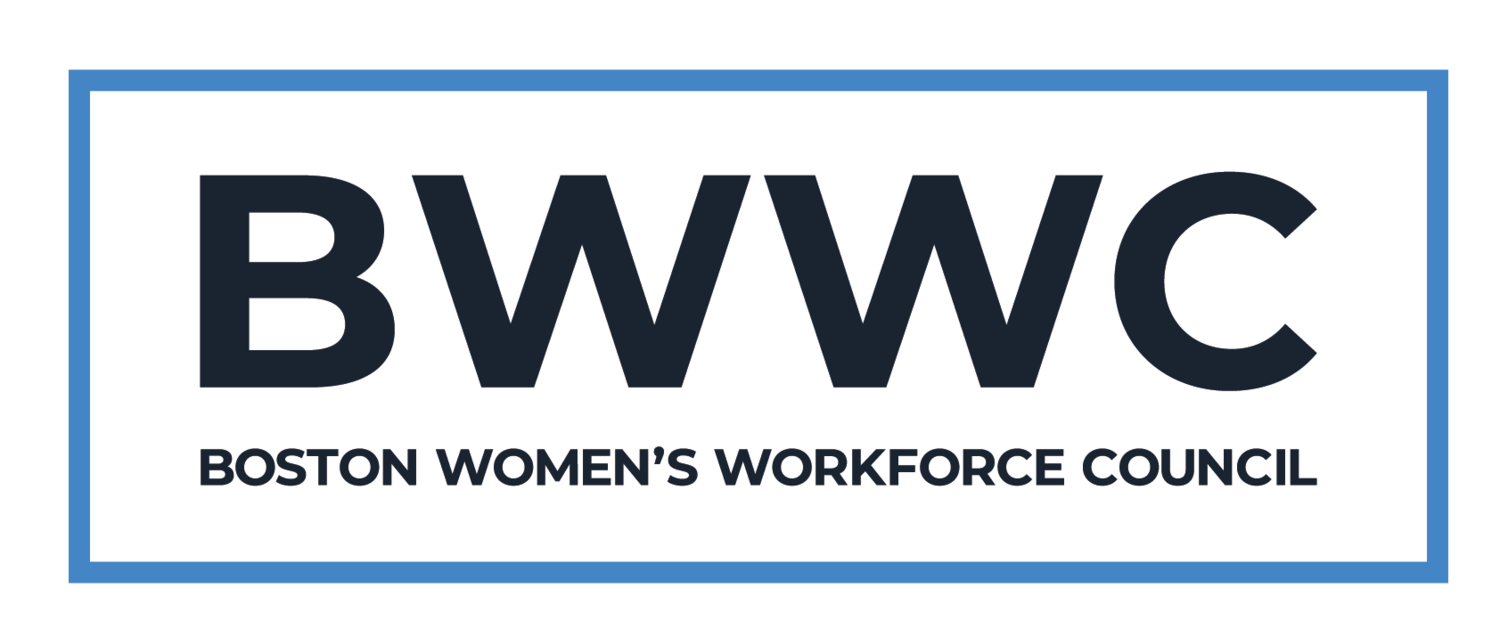CONTACT: Hannah Miller
(413) 717-7759 hannah@teakmedia.com
FOR IMMEDIATE RELEASE
December 3, 2020
Boston Women’s Workforce Council’s Annual Effective Practices Conference Brings Together Elected Leaders, Business Community to Highlight Organizations Working to Close the Gender Wage Gap
BOSTON – The gender/racial wage gap was the center of attention today during the Boston Women’s Workforce Council’s 6th Annual Effective Practices Conference, “Creating Change Now: Women’s Wages, Race and the Global Pandemic.” Attended by nearly 250 business leaders, including Mayor Martin J. Walsh, Mass. Attorney General Maura Healey, and BWWC co-founders Evelyn Murphy and Cathy Minehan, the event honored four companies for their innovative work to advance women during the pandemic.
In September, more than 860,000 women “opted out” of the workforce, which is four times that of their male counterparts. A panel featuring Chairman of Bright Horizons, David Lissy, Executive Director of the Mayor’s Office of Women’s Advancement (MOWA), Tania Del Rio, and Cathy Minehan, Co-Chair of the BWWC, underscored the importance of government and business working together to provide the financial resources necessary to make cultural and systemic shifts that will drive equity in this moment and beyond.
“All of us here today have had our fill about what could be. Enough talking. It is time for action. And the BWWC is in a great position as a partner to both City Hall and Greater Boston employers to make that happen,” says BWWC Executive Director Kim Borman.
Karilyn Crockett, Chief of Equity for the City of Boston, lauded the award winners for their innovations that enabled the advancement and promotion of women during this particularly difficult time.
Innovative Initiatives Awards Winners:
Massachusetts General Hospital Center for Faculty Development, part of the Mass General Brigham system, used the pandemic to address long-standing issues around gender equity in academic medicine by enabling women to participate virtually in promotion-critical activities such as international presentations, visiting professorships and Grand Rounds.
Boston Children’s Hospital instituted flextime options and childcare facilities so healthcare workers could remain on the job during the pandemic. A partnership with Simmons University enabled employees to live in the dorms while they were working at the hospital in order to keep their families safe.
Liberty Mutual helped employees focus on their wellbeing through its We@Liberty programs. The company put on more than 150 virtual events on emotional wellbeing, as well as eight live panel discussions, to help employees address challenges.
MassMutual helped employees balance the multiple demands of work and personal commitments by providing up to 80 hours of additional paid time-off, increasing the number of covered Employee Assistance Program (EAP) sessions, and providing online fitness classes dedicated to dealing with stress.
In the keynote address, Massachusetts Attorney General Maura Healey urged employers and government leaders to fund childcare and invest in diversity, equity and inclusion in order to achieve racial and gender wage parity within their organizations. Research, curated by the BWWC and released to conference attendees, shows that businesses experience increased employee retention and the ability to attract key talent when they put in place policies and encourage cultural changes that lead to eliminating the gender/ racial wage gap.
Pointing to the inequities that occur along racial and socioeconomic lines, as communities of color and immigrants have been hit the hardest during the pandemic, Healey said, “We have a once in a lifetime opportunity to emerge from this pandemic in ways that will make our society stronger.”
About the BWWC
Founded in 2013, the Boston Women’s Workforce Council (BWWC) leads a unique public-private partnership between Mayor Martin J. Walsh’s office and Greater Boston employers dedicated to eliminating the gender/racial wage gap. The BWWC recruits employers to sign the 100% Talent Compact, a pledge to examine their policies, work toward fixing pay and advancement inequities they might find, and share their payroll data on race and gender in order to provide a community snapshot on progress. It is a first-in-the-nation approach to removing the visible and invisible barriers to women’s advancement.
For more information, visit www.thebwwc.org.

